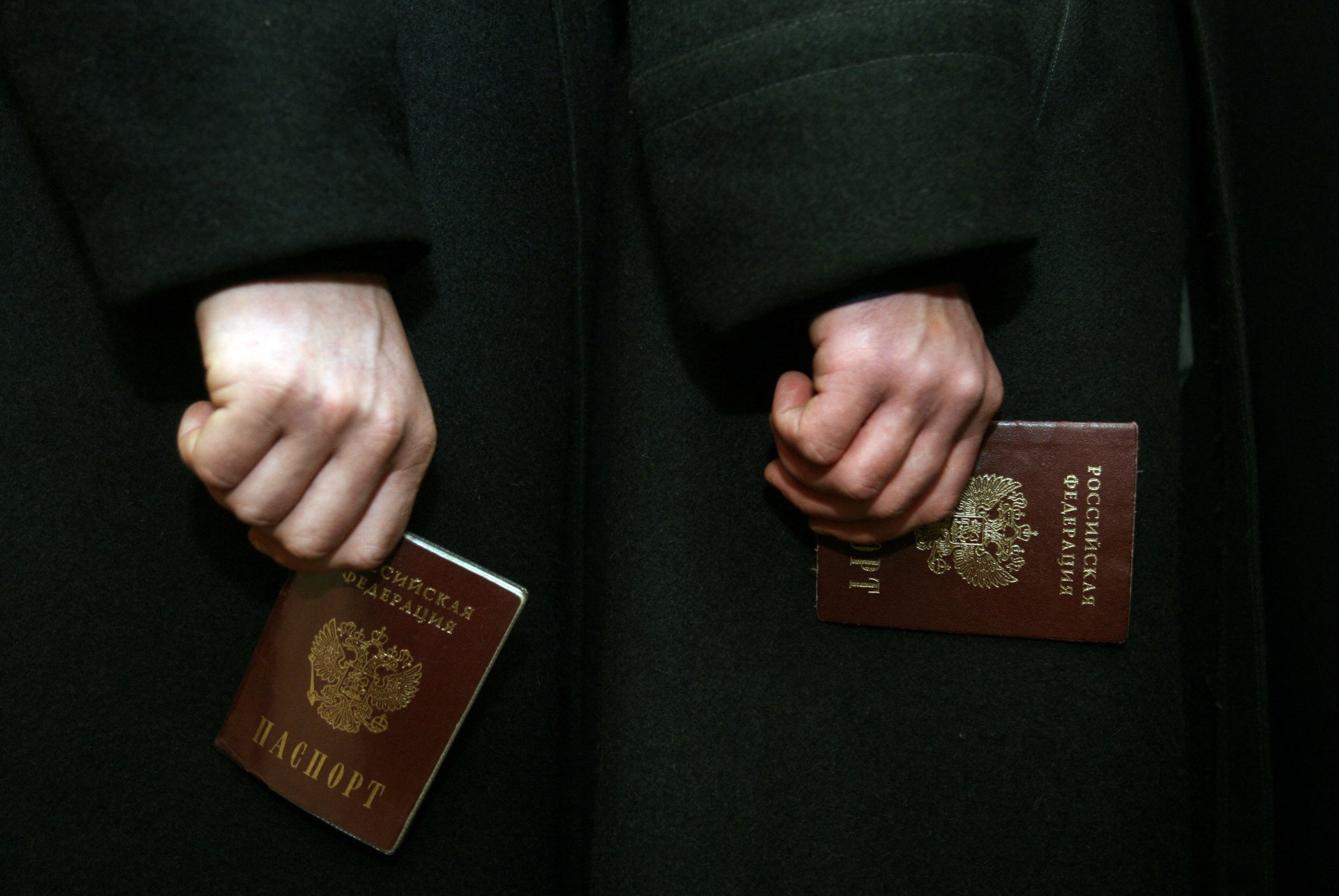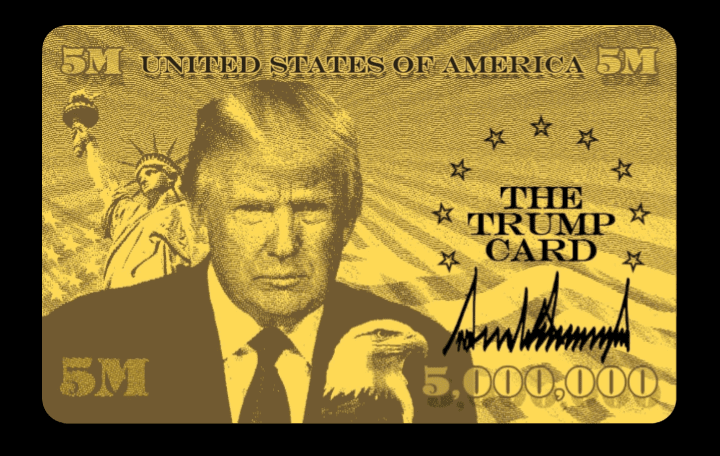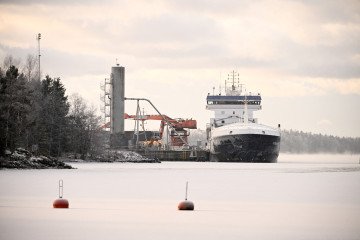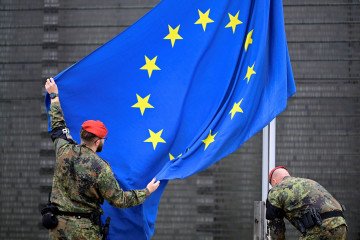- Category
- World
How Europe Became a Safe Haven for Russian Elites Using Dual Passports to Evade Sanctions

As the EU tightens controls to curb security threats, Kremlin-linked elites have already slipped through — using second passports and golden visas to funnel "dirty money" into Europe and bankroll Russia’s war. Now, new doors may be opening just as old ones begin to shut.
Lithuanian lawmakers have introduced a bill that would strip dual citizens of their Lithuanian nationality if they are found supporting Russia, the Lithuanian government announced in May 2025.
They’re not seeking Lithuanian citizenship out of patriotism or a connection to their roots, but to evade sanctions.
Dalia Asanaviciute
Conservative lawmaker and one of the Lithuanian bill’s co-authors
Roman Abramovich, a Russian oligarch, used his children's Lithuanian passports to shield family assets from Western sanctions. In February 2022, as Russia invaded Ukraine, Abramovich transferred ownership of trusts holding at least $4 billion to his seven children, the Organised Crime and Corruption Reporting Project (OCCRP) reported.
The UK and the West threatened Russian oligarchs with sanctions, which forced Abramovich to move his assets. The transfer was enough money to put his children among the 500 richest Lithuanians, the OCCRP said.
Russians with dual nationality have exploited their second passport, serving as a loophole to evade sanctions, protect their assets, and fuel Russia’s war machine. Enabling Russia’s wealthy to travel freely, open bank accounts, and engage in nefarious and often criminal activities across Europe.
🇱🇻 Latvia: Police alongside immigration officers caught some illegal Russian immigrants with expired residence permits as they queued in line at the Russian embassy to vote in the pretend election, which Latvia calls an attempt to legitimize the regime. They will be deported. pic.twitter.com/g4tsoq82wf
— Igor Sushko (@igorsushko) March 17, 2024
European government programs, known as “golden visa schemes,” allowed Russians to obtain European citizenship through investment, which opened routes for Russia’s procurement networks to fuel its war effort in Ukraine. While Europe is clamping down on these schemes, deeming some of those who buy the visa a security threat, a new pathway in the US is potentially opening, dubbed the “Gold Card”.
The UK's golden visa
Thousands of Russia’s elite have bought the right to live in the UK by investing more than £2 million in British-registered companies through the UK’s tier 1 visa scheme, known as “golden visas”. The UK government closed the scheme after Russia’s full-scale invasion of Ukraine in 2022.
Golden visas were a shocking loophole for dirty money to make its way into our economy, and for oligarchs to buy their way into this country.
Margaret Hodge
UK Labour MP
The then Home Secretary, Suella Braverman, said that the scheme had "attracted a disproportionate number of applicants from the countries identified in the UK’s National Risk Assessment of money laundering and terrorist financing".
Braverman confirmed that 10 unnamed sanctioned Russian oligarchs had taken advantage of the golden visa scheme.
In 2024, the UK’s Home Office was accused of covering up aspects of the scheme by withholding information about its users after the Novichok attack on former Russian military intelligence officer, Sergei Skripal, in Salisbury, The Guardian reported.
Frankly, the whole thing stinks of a cover-up. We know Putin’s cronies used and abused this scheme—so why won’t the government give us the full picture?Layla Moran
UK Liberal Democrat foreign affairs spokesperson
However, even though the UK's “golden visa” scheme has closed, some of the sanctioned Russian elite, directly involved in Russia’s occupation of Ukraine, are still exploiting dual-nationality routes into Europe.
A recently sanctioned dual UK-Uzbekistani tycoon, Rustam Muminov, has been found to be at the heart of a hidden supply chain turning cotton pulp into Russia’s deadly firepower.
Ukraine sanctioned Muminov and his two companies, Mercury Renaissance, and Fargona Kimyo Zavodi, for supplying Russia with a key component of nitrocellulose, the same material used produce explosives for Russia’s weapons.
Controlling roughly 85% of Uzbekistan’s cotton pulp exports to Russia, Muminov has funnelled over $170 million worth of this key missile ingredient since Russia’s full-scale invasion of Ukraine, directly powering the Kremlin’s war in Ukraine.
-5947c77002279f1b732400e88fec4b3a.jpg)
Dmitrii Ovsiannikov is the former Russia-appointed Governor of the illegally occupied Ukrainian city of Sevastopol in Crimea. Two years after Russia illegally annexed Crimea, Russia’s leader, Vladimir Putin, personally appointed Ovsiannikov as acting governor before he was elected for the official role.
Ovsiannikov has been sanctioned since 2017 for his appointment in Crimea. Yet, in January 2023, he secured a UK passport thanks to his British father. By February 2023, he was living in London. In a landmark case in April 2025, Ovsiannikov became the first person in the UK to be convicted for sanction evasion.
His family aided his “lavish lifestyle” while showing “complete disregard for the law,” Julius Capon of the Crown Prosecution Service said.
Ovsiannikov was found guilty of 6 of 7 counts of circumventing sanctions and was sentenced to 40 months' imprisonment for each count.
National Crime Agency chief Graeme Biggar said that Ovsiannikov’s case was one of 180 aimed at reducing the “criminal threat posed by Putin-linked elites and their enablers since the invasion of Ukraine”.
German-Russian spy ring
Pre full-scale invasion of Ukraine, Russia had the world’s largest volume of dark money hidden abroad—about $1 trillion. Much of this dark money is hidden within shell companies, used for circumventing sanctions and now, for moving Western components to be used in military arsenal.
-9a1a8aa6bb981b0fb9d7186857f4a470.jpg)
Three German-Russian dual citizens are currently on trial in Munich for allegedly spying for the Kremlin and plotting sabotage attacks on military and industrial sites in Germany to undermine support for Ukraine. The group targeted a US military base in Germany near Grafenwöhr and an oil refinery in Bavaria, and planned to carry out bomb attacks on infrastructure linked to Ukraine’s war effort.
The suspected ringleader, named only as Dieter S due to Germany’s privacy laws, fought with Russian-backed separatists in Donetsk since 2014, when Russia initially invaded Ukraine. Dieter S is accused of filming the military sites and planning the sabotage attacks. The two co-defendants, Alexander J. and Alex D., admitted some charges but deny knowingly working for the Kremlin.
Their case is ongoing and will continue to December 2025, reports stated.
Another German-Russian dual citizen sold electronics to Russian companies for military use, violating sanctions, landing him six years and nine months in prison, according to Reuters .
In July 2023, the Stuttgart court said that the 59-year-old man sent 120,000 parts to Russia between January 2020 and May 2023 to be used for military purposes, including parts used in the Orlan-10 drone. After Russia’s full-scale invasion of Ukraine began in 2022, the man disguised the sales with shipping documents and invoiced countries like Hong Kong and Türkiye.
Malta’s golden passports
Malta had what’s known as the “golden passport” scheme, granting citizenship to those who make significant financial contributions, such as donations and property purchases. Malta was the last EU country that still had a citizenship for sale scheme.
In April 2025, the Court of Justice of the European Union (CJEU) ruled that Malta’s citizenship by investment programme is illegal. The programme is no longer valid, and all issued passports are under review.
The Commission’s case had sought an outright ban on citizenship-for-sale schemes, arguing that citizens have been granted citizenship without a genuine connection to the country in breach of EU law.
When Putin's troops first rolled into Ukraine, Prime Minister Robert Abela brushed off demands to stop selling EU passports to rich Russians. It now transpires he was part of a golden passports system that accepted Russian money without question https://t.co/ElnDFT8F9p pic.twitter.com/ZwQ78wZ2l8
— Jacob Borg (@BorgJake) March 20, 2022
Russian businessman Albert Avdolyan is one of many Russian businessmen who acquired a Maltese “golden passport.” In 2015, he obtained his Maltese passport, which allowed him to bypass travel bans. The Financial Times reported that Avdolyan was found to be “closely associated” with Russia’s major state weapons corporation Rostec and was hit with EU sanctions in February 2025.
Evgeniya Vladimirovna Bernova is another Russian national who obtained Maltese citizenship through the scheme. Bernova has been sanctioned due to her involvement with companies “at the heart” of Russia’s dual-use goods procurement network. “Engaged in proliferation activities at the direction of Russian Intelligence Services, Washington said.
The Trump Card and EU crackdowns
In response to growing threats linked to terrorism and Russia’s war in Ukraine, several EU states are reassessing citizenship laws, potentially stripping dual nationality if they’re found to pose a serious security risk. Czechia restricted the ability of Russian citizens over 15 years old to obtain citizenship in January 2025.

However, the US seems to be moving toward bought citizenship. In April 2025, US President Trump discussed the idea of introducing a “gold card” where foreign businesspeople can invest $5 million as a route to American citizenship. Trump noted that Russian oligarchs would possibly be eligible, replying to a journalist, “I know some Russian oligarchs that are very nice people," he said. Trump launched a new website in June, “trumpcard.gov”, whereby those wanting to invest and therefore obtain citizenship can join a waiting list.
Uzbekistan, Russia’s main supplier of cotton used in its missiles to strike Ukraine, launched a new donation-based visa in April 2025. Foreign citizens and stateless persons will be able to obtain a visa for 5 years when a donation of $250,000 and $150,000 for each family member is made. There are no restrictions on any nationality thus far.
While Russian citizens no longer enjoy privileged access to the EU and face a more difficult visa process, its elite continues to find new ways to circumvent restrictions. From European real estate to luxury shopping sprees abroad, they fuel Russia’s arms industry while living lives of comfort and excess, largely untouched by the consequences of the war they help sustain.
-46f6afa2f66d31ff3df8ea1a8f5524ec.jpg)

-605be766de04ba3d21b67fb76a76786a.jpg)
-2c683d1619a06f3b17d6ca7dd11ad5a1.jpg)


-661026077d315e894438b00c805411f4.jpg)